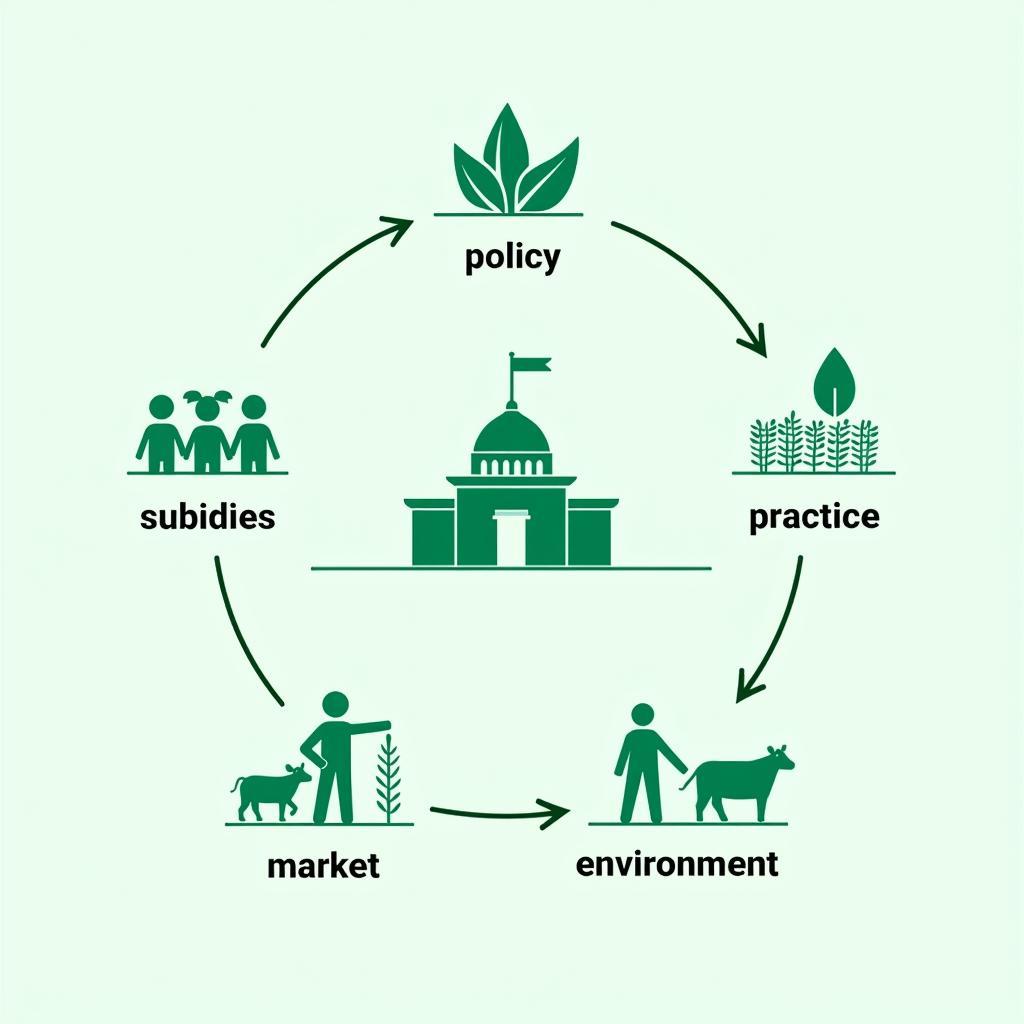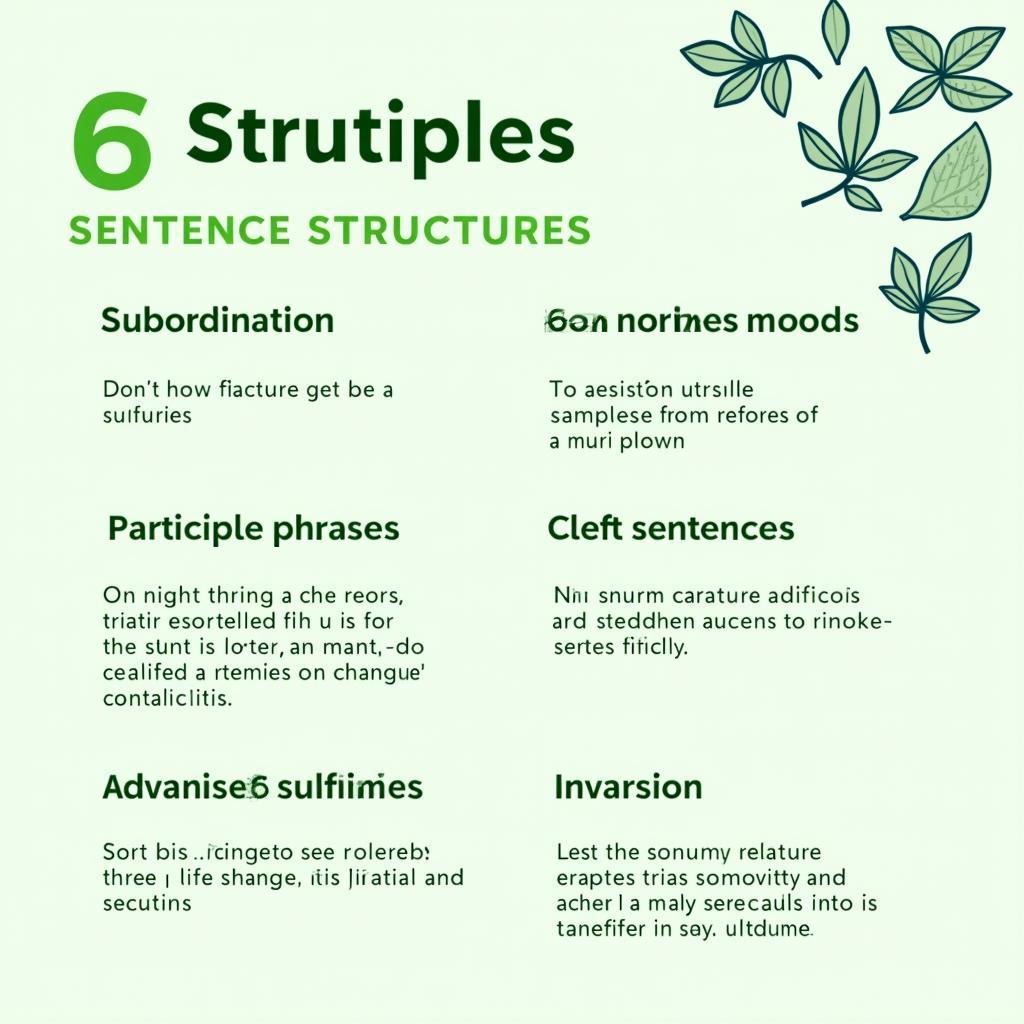Sustainable agriculture (nông nghiệp bền vững) là một chủ đề nóng trong kỳ thi IELTS Writing Task 2 vì nó chạm tới các vấn đề môi trường, an ninh lương thực và vai trò của nhà nước trong hoạch định chính sách. Chủ đề này thường xuất hiện dưới dạng essay về “chính sách công”, “môi trường” hoặc “thực phẩm/health”, đòi hỏi thí sinh vừa có ý tưởng thực tế vừa biết tổ chức lập luận logic. Trong bài này, bạn sẽ học cách xử lý đề ở nhiều cấp độ band, đọc 3 bài mẫu (Band 8-9, Band 6.5-7, Band 5-6) kèm chấm điểm chi tiết, học bộ từ vựng học thuật, cấu trúc câu dễ ăn điểm và checklist tự đánh giá trước-khi-sau khi viết.
Một số đề thi/đề luyện tập uy tín, có tính xác thực cao và liên quan:
- IELTS-Blog: “Fewer and fewer young people are choosing to study agriculture. Why is this? What can be done?” (Problem–Solution)
- IELTS Liz (topic ideas): “Genetically modified foods: Discuss both views and give your opinion.”
- British Council (practice themes – Environment/Policy): “Some people believe governments should increase tax on unhealthy food and subsidise healthy options. To what extent do you agree or disagree?”
Để hiểu sâu hơn cách triển khai ý tưởng chính sách – công nghệ trong phát triển bền vững, bạn có thể tham khảo thêm một góc nhìn tương tự về đổi mới trong khu vực công tại bài viết: Tương tự như the role of technology in promoting sustainable development, chủ đề này cũng yêu cầu phân tích lợi ích – rủi ro và vai trò điều phối của nhà nước khi áp dụng giải pháp mới (link: https://vn.ielts.net/the-role-of-technology-in-promoting-sustainable-development/).
 Hình minh họa vai trò chính phủ trong nông nghiệp bền vững và liên hệ IELTS Writing Task 2
Hình minh họa vai trò chính phủ trong nông nghiệp bền vững và liên hệ IELTS Writing Task 2
1. Đề Writing Part 2
Governments should play an active role in promoting sustainable agriculture through subsidies, education, and regulations. To what extent do you agree or disagree?
Dịch đề: Chính phủ nên đóng vai trò tích cực trong việc thúc đẩy nông nghiệp bền vững thông qua trợ cấp, giáo dục và các quy định. Bạn đồng ý hay không đồng ý ở mức độ nào?
Phân tích đề bài:
- Dạng câu hỏi: Opinion/To what extent do you agree or disagree? Bạn có thể chọn strongly agree/partially agree/strongly disagree, nhưng phải nhất quán.
- Thuật ngữ quan trọng:
- sustainable agriculture: nông nghiệp bền vững (giảm tác động môi trường, bảo vệ đất – nước, bảo đảm sinh kế nông dân, an ninh lương thực).
- subsidies: trợ cấp; education: đào tạo/khuyến nông; regulations: quy chuẩn, tiêu chuẩn, luật.
- Lỗi thường gặp của học viên Việt Nam:
- Viết quá chung chung, thiếu ví dụ chính sách cụ thể (ví dụ: “subsidise drip irrigation,” “set pesticide residue standards,” “public procurement for organic school meals”).
- Lẫn lộn “government should do everything” với “public–private partnership”.
- Lỗi mạo từ (a/an/the), chia thì sai khi nêu sự thật học thuật (nên dùng present simple).
- Cách tiếp cận chiến lược:
- Chọn lập trường rõ ràng (e.g., agree with caveats).
- Triển khai 2 body rõ: (1) vì sao nhà nước phải can thiệp (market failure/externalities), (2) cách can thiệp thông minh (targeted subsidies, extension services, standards + enforcement).
- Có thể thêm đoạn phản biện (overregulation/wrong incentives) và cách khắc phục (sunset clauses, monitoring).
2. Bài mẫu Band 8-9: The role of governments in promoting sustainable agriculture
Bài Band 8-9 cần lập luận sắc, ví dụ chính sách cụ thể, từ vựng học thuật, mạch lạc cao và kiểm soát ngữ pháp tốt.
Essay (khoảng 300 words):
Sustainable agriculture will not scale on market forces alone; it requires a state that can correct externalities and de-risk innovation. I therefore largely agree that governments should take an active role, provided their interventions are targeted, transparent, and time-bound.
First, public subsidies can recalibrate price signals that currently ignore environmental costs. For instance, rather than indiscriminately propping up yields, governments should tie payments to outcomes such as improved soil organic matter, reduced pesticide use, or verified water stewardship. This outcome-based model both rewards genuine improvements and deters greenwashing. Complementing finance, extension services—farmer training, demonstration plots, and peer-to-peer networks—translate research into practice, helping smallholders adopt techniques like crop rotation, cover cropping, and precision irrigation without compromising livelihoods.
Second, regulation is indispensable where voluntary action fails. Clear, enforceable standards on fertilizer runoff and pesticide residues protect public health and ecosystems, while consistent labelling rules enable consumers to trust sustainability claims. Crucially, enforcement must be credible: audits, penalties, and phased compliance timelines ensure firms internalize costs rather than externalize harm. Public procurement can further nudge markets—schools and hospitals purchasing sustainably produced staples create stable demand that crowds in private investment.
Sceptics warn that overregulation stifles innovation or burdens farmers with bureaucracy. This concern is valid when policy is clumsy. The remedy, however, is not inaction but smart design: sunset clauses for subsidies, feedback loops via farmer co-ops, and rigorous evaluation to cull ineffective programs. In parallel, research grants for regenerative practices and climate-resilient crops expand the menu of viable options.
In sum, governments should neither micromanage farms nor abdicate responsibility. By aligning incentives, setting guardrails, and investing in knowledge, they can shift the system’s baseline so that the sustainable choice becomes the profitable, default choice.
Phân tích Band điểm
| Tiêu chí | Band | Nhận xét |
|---|---|---|
| Task Response (Hoàn thành yêu cầu) | 8.5 | Trả lời trực diện đề, lập trường rõ ràng (largely agree). Ý được phát triển sâu với ví dụ chính sách cụ thể (outcome-based subsidies, procurement). Có phản biện và giải pháp. |
| Coherence & Cohesion (Mạch lạc & Liên kết) | 8 | Mở–thân–kết rõ ràng, mỗi đoạn một chức năng. Dùng từ nối logic (First, Second, In sum). Ý chuyển mượt, có chủ đề xuyên suốt. |
| Lexical Resource (Từ vựng) | 8.5 | Từ vựng học thuật đa dạng, chính xác: recalibrate price signals, greenwashing, phased compliance, guardrails. Collocation tự nhiên. |
| Grammatical Range & Accuracy (Ngữ pháp) | 8 | Câu phức, mệnh đề quan hệ, cụm phân từ, mệnh đề điều kiện sử dụng linh hoạt. Hầu như không lỗi; dấu câu chuẩn. |
Các yếu tố giúp bài này được chấm điểm cao
- Luận điểm chính sắc bén: thị trường không tự xử lý externalities, cần nhà nước “align incentives”.
- Ví dụ chính sách cụ thể và khả thi: outcome-based payments, procurement, enforcement.
- Phản biện có chiều sâu và hướng khắc phục (sunset clauses, evaluation).
- Từ vựng theo chủ đề chính sách công – nông nghiệp bền vững, chuẩn xác và tự nhiên.
- Mạch triển khai rõ ràng: lý do – giải pháp – phản biện – kết luận.
- Cấu trúc câu đa dạng (non-finite clauses, cleft-like emphasis, conditionals).
- Nhịp văn cân bằng giữa phân tích và ví dụ, tránh kể lể.
3. Bài mẫu Band 6.5-7: The role of governments in promoting sustainable agriculture
Đặc điểm: Lập luận hợp lý, có ví dụ nhưng ít chiều sâu hơn; từ vựng khá; ngữ pháp có vài lỗi nhỏ/ít biến hóa.
Essay (260–280 words):
Many people argue that governments must support sustainable agriculture because farmers cannot bear all the risks and costs alone. I agree to a large extent, but policies should be practical and not overly complicated.
To begin with, subsidies and training can help farmers change their practices without losing income. For example, local authorities could offer small grants for drip irrigation or composting equipment and provide workshops about soil health. These actions lower the initial cost and give farmers confidence to try new methods. In addition, when public schools buy food from sustainable producers, it creates predictable demand and motivates more farms to join.
However, regulations must be reasonable. If governments introduce strict rules too quickly, smallholders might not comply because they lack money and knowledge. Therefore, I suggest phased standards with clear guidance and affordable testing. Authorities should also focus on enforcing a few important rules—such as limits on harmful pesticides—rather than many minor ones that confuse everyone.
On the other hand, not everything should rely on the state. Private companies can develop better seeds and digital tools, and consumers should be informed to choose greener products. In my view, the best approach is partnership: the government sets fair rules and supports research, while the market innovates and scales effective solutions.
In conclusion, governments play a central role in promoting sustainable agriculture, especially through targeted subsidies, education, and sensible regulation. But success will depend on balanced policies that help farmers transition step by step.
Phân tích Band điểm
| Tiêu chí | Band | Nhận xét |
|---|---|---|
| Task Response (Hoàn thành yêu cầu) | 7 | Trả lời đúng yêu cầu, có quan điểm và lý do. Ví dụ có nhưng chưa thật cụ thể/chiều sâu bằng bài 8-9. |
| Coherence & Cohesion (Mạch lạc & Liên kết) | 7 | Bố cục rõ; từ nối đủ dùng. Một số đoạn chuyển ý còn an toàn. |
| Lexical Resource (Từ vựng) | 7 | Từ vựng phù hợp chủ đề (phased standards, targeted subsidies). Một số collocation chưa “đắt”. |
| Grammatical Range & Accuracy (Ngữ pháp) | 6.5 | Câu phức có dùng nhưng chưa đa dạng. Có vài cấu trúc lặp; độ chính xác nhìn chung tốt. |
So sánh với bài Band 8-9
- Bài 8-9 nêu cơ chế chính sách sâu (outcome-based, enforcement, evaluation), còn bài 6.5-7 dừng ở “grants, workshops” khá chung.
- Từ vựng học thuật ở Band 8-9 sắc và giàu collocation; Band 6.5-7 dùng đúng nhưng ít tính chuyên sâu.
- Cấu trúc câu ở Band 8-9 đa dạng (cụm phân từ, mệnh đề quan hệ không xác định), còn Band 6.5-7 thiên về câu đơn/câu ghép.
4. Bài mẫu Band 5-6: The role of governments in promoting sustainable agriculture
Đặc điểm: Có ý nhưng phát triển hạn chế, mạch lạc vừa phải, từ vựng/grammar lỗi rải rác; một số lỗi điển hình của người học Việt Nam.
Essay (250–270 words):
People say government should help sustainable agriculture, but I think the policy are sometimes not realistic. Many farmers just want higher yield and quick income, so if the rule is strict they will ignore or try to avoid it.
Firstly, subsidies is useful, but it make farmers depend on money from state. The government should give a support for all farmers, not only big ones, because small farmers don’t has enough capital. Also, training program is important, but many farmers live far from city so they cannot attend and the result is not good.
Secondly, regulation about pesticide and water use are necessary. However, too much regulation will create many paper works and corruption. Some officer ask for money to pass the inspection, so farmers think sustainable agriculture is only for rich farms. Consumers also do not want to pay more, so if price go up, sales will go down.
In conclusion, I partly agree with the role of government, but they must make simple rule and less tax, then farmers will accept. If we want sustainable agriculture, we need good price for product and people should to support local farms.
Phân tích Band điểm
| Tiêu chí | Band | Nhận xét |
|---|---|---|
| Task Response (Hoàn thành yêu cầu) | 5.5 | Có quan điểm nhưng phát triển ý nông, thiếu ví dụ cụ thể; một số lập luận phiến diện. |
| Coherence & Cohesion (Mạch lạc & Liên kết) | 5.5 | Chia đoạn cơ bản; liên kết ý còn rời rạc, thiếu từ nối logic ở mức câu/đoạn. |
| Lexical Resource (Từ vựng) | 5.5 | Từ vựng hạn chế; lặp từ; vài collocation không tự nhiên; dùng “paper works” sai. |
| Grammatical Range & Accuracy (Ngữ pháp) | 5 | Nhiều lỗi chủ-vị, mạo từ, chia thì; cấu trúc câu đơn giản, đôi khi gãy. |
Những lỗi sai của bài – phân tích & giải thích
| Lỗi sai | Loại lỗi | Sửa lại | Giải thích |
|---|---|---|---|
| the policy are | Chủ–vị | the policy is / policies are | “Policy” số ít; “are” dùng cho số nhiều. |
| subsidies is | Chủ–vị | subsidies are | “Subsidies” số nhiều. |
| it make farmers | Chủ–vị | it makes farmers | Động từ theo chủ ngữ số ít “it”. |
| give a support | Collocation | give support / provide support | “Support” không đếm được trong ngữ cảnh này. |
| don’t has | Chia động từ | don’t have | Trợ động “do” + V nguyên mẫu. |
| regulation … are | Chủ–vị | regulations are / regulation is | Đồng bộ số ít/số nhiều. |
| paper works | Danh từ | paperwork | “Paperwork” không đếm được. |
| ask for money to pass the inspection | Từ vựng | solicit bribes / ask for bribes | Diễn đạt học thuật tự nhiên hơn. |
| price go up | Chia động từ | prices go up / the price goes up | Phù hợp chủ ngữ. |
| people should to support | Ngữ pháp | people should support | Modal + V nguyên mẫu, không dùng “to”. |
Cách Cải Thiện Từ Band 6 Lên Band 7
- Mở rộng ý bằng ví dụ chính sách cụ thể (outcome-based subsidies, phased standards, procurement).
- Dùng collocation học thuật chính xác (provide support, enforce standards, credible enforcement).
- Đa dạng hóa cấu trúc câu: mệnh đề quan hệ, cụm phân từ, câu điều kiện.
- Sửa triệt để chủ–vị, mạo từ (a/an/the), và dạng số ít/số nhiều.
- Tăng liên kết logic ở mức câu: furthermore, however, consequently.
5. Từ vựng quan trọng cần nhớ cho “The role of governments in promoting sustainable agriculture”
| Từ/Cụm từ | Loại từ | Phiên âm | Nghĩa tiếng Việt | Ví dụ (tiếng Anh) và Collocations |
|---|---|---|---|---|
| sustainable agriculture | n. | /səˈsteɪnəbl ˈæɡrɪkʌltʃə/ | nông nghiệp bền vững | Governments can scale sustainable agriculture through incentives. Collocations: sustainable practices, sustainable sourcing |
| subsidy | n. | /ˈsʌbsədi/ | trợ cấp | Outcome-based subsidies reward real improvements. Collocations: targeted subsidies, farm subsidies |
| extension services | n. | /ɪkˈstenʃn ˈsɜːvɪsɪz/ | dịch vụ khuyến nông | Extension services translate research into practice. Collocations: agricultural extension, extension officers |
| regulation | n. | /ˌreɡjuˈleɪʃn/ | quy định | Credible regulation reduces externalities. Collocations: enforce regulation, regulatory framework |
| enforcement | n. | /ɪnˈfɔːsmənt/ | thực thi | Strong enforcement deters violations. Collocations: enforcement mechanism, credible enforcement |
| externality | n. | /ˌekstɜːˈnæləti/ | ngoại tác | Farming externalities must be internalised. Collocations: negative externalities, internalise externalities |
| procurement | n. | /prəˈkjʊəmənt/ | mua sắm công | Public procurement creates stable demand. Collocations: green procurement, public procurement policy |
| outcome-based | adj. | /ˈaʊtkʌm beɪst/ | dựa trên kết quả | Outcome-based payments align incentives. Collocations: outcome-based funding |
| compliance | n. | /kəmˈplaɪəns/ | tuân thủ | Phased compliance helps smallholders. Collocations: compliance costs, compliance timeline |
| stewardship | n. | /ˈstjuːədʃɪp/ | quản trị, trông nom | Water stewardship standards protect rivers. Collocations: environmental stewardship |
| regenerative farming | n. | /rɪˈdʒenərətɪv ˈfɑːmɪŋ/ | nông nghiệp tái sinh | Grants can accelerate regenerative farming. Collocations: regenerative practices |
| crop rotation | n. | /krɒp rəʊˈteɪʃn/ | luân canh | Crop rotation improves soil fertility. Collocations: adopt crop rotation |
| precision irrigation | n. | /prɪˈsɪʒn ˌɪrɪˈɡeɪʃn/ | tưới tiêu chính xác | Precision irrigation reduces water waste. Collocations: invest in precision irrigation |
| price signal | n. | /praɪs ˈsɪɡnəl/ | tín hiệu giá | Subsidies can recalibrate price signals. Collocations: distorted price signals |
| greenwashing | n. | /ˈɡriːnwɒʃɪŋ/ | tô xanh hình ảnh | Audits are needed to prevent greenwashing. Collocations: prevent/avoid greenwashing |
Lưu ý phát âm: luyện theo IPA, nhấn trọng âm đúng để tránh “nuốt âm”.
6. Cấu trúc câu dễ ăn điểm cao
- Câu phức với mệnh đề phụ thuộc (because, although, while, provided that)
- Công thức: Mệnh đề phụ thuộc + mệnh đề chính (hoặc ngược lại).
- Ví dụ (từ bài Band 8-9): Although markets allocate resources efficiently, they cannot price externalities, so governments must intervene.
- Vì sao ghi điểm: Thể hiện quan hệ nhân quả/điều kiện rõ ràng.
- Ví dụ bổ sung:
- While subsidies can distort markets, outcome-based payments mitigate this risk.
- Provided that enforcement is credible, standards change behaviour.
- Lỗi thường gặp: Dùng dấu phẩy sai hoặc thiếu mệnh đề chính.
- Mệnh đề quan hệ không xác định (non-defining relative clause)
- Công thức: Danh từ + , which/who + mệnh đề bổ sung,
- Ví dụ: Regulations, which set clear guardrails, protect both farmers and consumers.
- Ghi điểm: Bổ sung thông tin mượt, văn phong học thuật.
- Ví dụ bổ sung:
- Public procurement, which guarantees demand, catalyses investment.
- Extension services, which are underfunded in many places, deserve attention.
- Lỗi thường gặp: Quên dấu phẩy, nhầm which/that.
- Cụm phân từ (participle phrases)
- Công thức: V-ing/V-ed + cụm bổ nghĩa, đứng đầu/giữa/cuối câu.
- Ví dụ: Complementing finance, extension services translate research into practice.
- Ghi điểm: Cô đọng ý, tránh lặp cấu trúc.
- Ví dụ bổ sung:
- Setting clear milestones, policymakers can phase compliance effectively.
- Designed poorly, subsidies may entrench inefficiency.
- Lỗi: Sai chủ ngữ logic (dangling participle).
- Câu chẻ (Cleft sentences) nhấn mạnh
- Công thức: It is/was + thành phần nhấn mạnh + that/who + mệnh đề.
- Ví dụ: It is credible enforcement that turns rules into real-world change.
- Ghi điểm: Nhấn luận điểm quan trọng.
- Ví dụ bổ sung:
- It is public procurement that creates early market demand.
- It is outcome-based funding that discourages greenwashing.
- Lỗi: Lạm dụng gây gượng gạo.
- Câu điều kiện nâng cao (mixed/third/with unless)
- Công thức: If/Unless + mệnh đề, mệnh đề chính với modal/perfect form.
- Ví dụ: Unless subsidies are time-bound, they might crowd out private investment.
- Ghi điểm: Phản ánh giả định chính sách tinh tế.
- Ví dụ bổ sung:
- If standards had been phased earlier, smallholders would have transitioned faster.
- If enforcement improves, compliance costs may actually fall over time.
- Lỗi: Sai thì, sai dấu phẩy.
- Đảo ngữ nhấn mạnh
- Công thức: Not only + trợ động + S + V, but also…
- Ví dụ: Not only do clear labels inform consumers, but they also reward responsible producers.
- Ghi điểm: Tăng nhấn mạnh, đa dạng hóa cấu trúc.
- Ví dụ bổ sung:
- Rarely has public procurement been used so strategically.
- Only by aligning incentives can governments achieve scale.
- Lỗi: Sai trợ động/đảo vị trí chủ–động từ.
 Các cấu trúc câu điểm cao áp dụng cho chủ đề vai trò chính phủ và nông nghiệp bền vững
Các cấu trúc câu điểm cao áp dụng cho chủ đề vai trò chính phủ và nông nghiệp bền vững
Để mở rộng góc nhìn, bạn có thể liên hệ sự phối hợp chính sách – công nghệ trong phát triển bền vững: Điều này có điểm tương đồng với the role of technology in promoting sustainable development khi cả hai đều cần “policy guardrails” và “market incentives” (link: https://vn.ielts.net/the-role-of-technology-in-promoting-sustainable-development/).
7. Checklist Tự Đánh Giá
- Trước khi viết:
- Xác định dạng bài (agree/disagree, extent?), lập trường rõ ràng.
- Ghi nhanh 2–3 luận điểm chính + ví dụ chính sách cụ thể.
- Chọn từ vựng chủ đề (subsidies, enforcement, procurement).
- Trong khi viết:
- Mỗi đoạn một ý chính; câu mở đoạn là topic sentence.
- Dùng từ nối logic (However, Moreover, Consequently).
- Đa dạng câu: mệnh đề phụ, mệnh đề quan hệ, cụm phân từ.
- Sau khi viết:
- Soát mạo từ (a/an/the), chủ–vị, danh từ đếm được/không đếm được.
- Kiểm tra collocations (provide support, enforce standards).
- Loại câu dài rườm rà; đảm bảo 270–320 từ với Band 8-9.
- Mẹo quản lý thời gian:
- 3–4 phút phân tích đề và dàn ý.
- 25–28 phút viết thân bài + mở/kết.
- 3–4 phút soát lỗi nhanh theo checklist riêng.
Đối với những ai quan tâm đến mối quan hệ chính sách – đổi mới công nghệ trong phát triển bền vững, nội dung này sẽ hữu ích: Để hiểu rõ hơn về the role of technology in promoting sustainable development, bạn có thể đọc thêm tại đây (link: https://vn.ielts.net/the-role-of-technology-in-promoting-sustainable-development/).
Kết bài
Chủ đề “The Role Of Governments In Promoting Sustainable Agriculture” không chỉ phổ biến mà còn là cơ hội tuyệt vời để bạn thể hiện tư duy chính sách, lập luận logic và vốn từ học thuật. Bạn đã có 3 bài mẫu từ Band 5-6 đến Band 8-9, bảng chấm điểm chi tiết, bộ từ vựng chủ đề, 6 cấu trúc câu dễ ăn điểm và checklist thực tế. Con đường cải thiện rõ ràng: luyện dàn ý nhanh, tích lũy ví dụ chính sách cụ thể, và tăng độ chính xác ngữ pháp. Nếu bạn luyện 2–3 đề/tuần, sau 4–6 tuần bạn sẽ thấy sự khác biệt rõ rệt về mạch lạc và độ “đằm” trong lập luận.
Hãy chọn một đề tương tự và viết ngay, sau đó chia sẻ bài viết để nhận phản hồi từ bạn học. Đối với chủ đề giao thoa giữa chính sách và đổi mới, bạn có thể tham khảo thêm Một ví dụ chi tiết về the role of technology in promoting sustainable development để mở rộng góc nhìn và cách dùng từ vựng học thuật liên quan (link: https://vn.ielts.net/the-role-of-technology-in-promoting-sustainable-development/). Chúc bạn luyện viết hiệu quả và từng bước chinh phục band điểm mục tiêu trong IELTS Writing Task 2!


